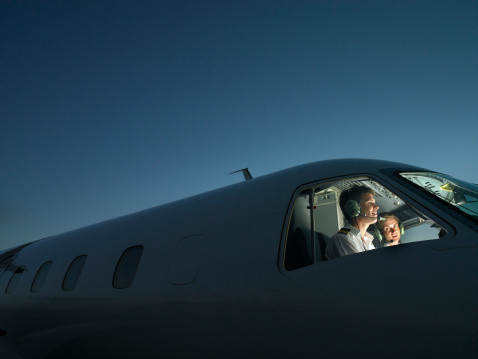Many pilots suffer from depression – and the stigma that goes with it
Suicidal thoughts and depression affect pilots making it urgent to strengthen support and fight stigma.

Hundreds of pilots flying on commercial airlines may fit the criteria for clinical depression, a study has hinted. Fighting the stigma around mental health that exists within the profession will be necessary to make sure pilots receive appropriate treatments and thrive in their job.
This research, published in the journal Environmental Health, is the first to focus on depression and suicidal thoughts among airline pilots outside of data collected after plane accidents – such as the Germanwings crash in 2015 – or regulated health examinations.
By fear of being stigmatised or losing their jobs, pilots tend to hide some of their problems during these assessments. This means they might miss out on life-saving treatments that could have helped them.
In this study however, participants were offered the opportunity to remain anonymous, so they were more inclined to describe their mental state accurately, providing a precise snapshot of pilots' mental health.
The web-based survey was completed by nearly 3,500 pilots from 50 countries, including 1,850 who answered the questions about their mental health.
The full questionnaire included standardised questions about job content and health – including questions that doctors use to clinically diagnose depression. The study design limited bias in the answers, because questions were mixed up so that mental health didn't seem to be the sole focus of the study.
An analysis of the questionnaires indicated that 12.6% of the participants met the criteria for likely depression, and 4.1% reported having suicidal thoughts within the previous two weeks before the study. Among those who flew as a airline pilot in the last seven days, the proportion of those with depressive symptoms reached 13.5%.
Helping pilots overcome depression
The goal of the study was not to define and rate solutions to help pilots overcome their mental health issues. However, the researchers at Harvard TH Chan School of Public Health did mention some of the initiatives they found useful.
"The European Aviation Safety Agency recently recommended that pilots be tested for mental health problems before beginning their employment and that they receive ongoing support. In the US the Federal Aviation Administration came to an agreement with unions to expand support programs for pilots and to train aviation medical examiners who conduct their health check-ups, in order to better diagnose and address mental health issues," first author Alexander Wu told IBTimes UK. "It is also very important to promote self-reporting of problems in a secure and confidential environment."
Fighting stigma and telling pilots that it is ok to ask for help and to seek out treatment will also prove crucial. "Another solution to decrease barriers to treatment is by promoting endorsements by people who are higher up in the hierarchy. If pilots are told by people who occupy higher positions that they should get support and treatment, it might make it easier for them to do so," Wu adds.
This study offers just a first glimpse of what depression and suicidal thoughts among pilots are like, but the plans for the future are to investigate what risk factors make pilots more likely to be depressed.
© Copyright IBTimes 2025. All rights reserved.






















